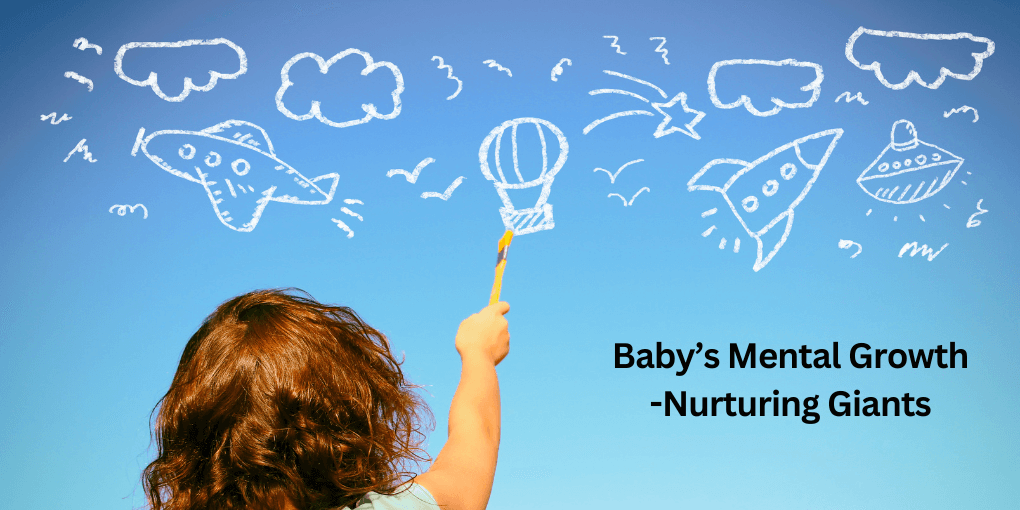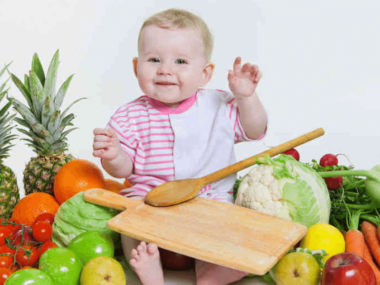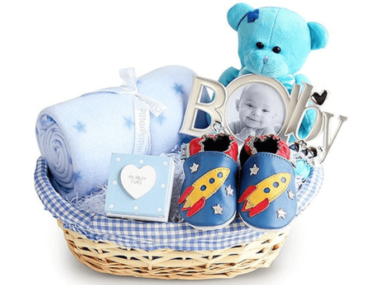Table of Contents Show
A baby’s mental development encompasses their cognitive, emotional, and social skills. It forms the foundation for their future learning, problem-solving abilities, and overall well-being. In this exploration, we will delve into the importance of nurturing a baby’s mental growth and understand the impact it has on their future success.

During the early years, a baby’s brain undergoes rapid development. Neural connections multiply, synapses form, and the brain becomes more adept at processing information.
This critical period creates a window of opportunity for enriching experiences, stimulating environments, and positive interactions that shape a baby’s mental growth.
Overall, nurturing a baby’s mental growth is crucial for their well-rounded development. It sets the stage for future learning, resilience, and success in various aspects of life.
By providing a rich and stimulating environment, engaging in meaningful interactions, and fostering emotional connections, we can lay a strong foundation for their mental growth.
Early Stages of Brain Development
The early stages of brain development in babies are a critical and fascinating time.
From the moment a baby is born, their brain begins to rapidly develop and form connections. Here, we will explore the early stages of brain development and understand the incredible processes that shape a baby’s growing mind.
Neurogenesis
Even before birth, neurogenesis, the formation of new neurons, is underway. During pregnancy, a baby’s brain develops billions of neurons, laying the foundation for future cognitive abilities and skills.
Synaptic Pruning
After birth, the brain undergoes synaptic pruning. Unnecessary connections and synapses are eliminated, while stronger connections are strengthened.
This process helps the brain become more efficient and specialized in processing information.
Sensory Development
In the first years of life, a baby’s brain works diligently to process and make sense of the sensory input it receives. The senses of sight, hearing, touch, taste, and smell play a vital role in shaping the brain’s understanding of the world.
Myelination
The process of myelination occurs during the early years and plays a crucial role in the efficient transmission of signals within the brain.
Myelin, a fatty substance, insulates the nerve fibers, allowing for faster communication and coordination between different parts of the brain.
Language Acquisition
Babies are born with an innate ability to learn languages. During the early stages of brain development, they actively absorb and process language input from their environment. This period is known as the critical period for language development.
Cognitive Milestones
As the brain develops, babies hit significant cognitive milestones. They begin to understand cause and effect, develop object permanence (the understanding that objects exist even if not in sight), and engage in problem-solving activities.
The Role of Sensory Stimulation
Sensory stimulation plays a crucial role in a baby’s early development, as it helps shape their perception, cognition, and overall understanding of the world.
The various sensory experiences a baby encounters contribute to their brain development and lay the foundation for future learning. Here, we will explore the role of sensory stimulation in a baby’s development.
Cognitive Development
Sensory stimulation is instrumental in promoting cognitive development. When babies engage with different textures, colors, sounds, and objects, their brains receive a wealth of information.
This information helps form neural connections and build cognitive skills such as attention, memory, and problem-solving abilities.
Language Acquisition
Sensory stimulation is closely linked to language development. Babies listen to the sounds and rhythms of speech, observe lip movements, and absorb visual cues alongside auditory cues.
These sensory inputs facilitate language acquisition and help babies understand and mimic sounds, gestures, and words.
Motor Skills
Sensory stimulation provides opportunities for babies to explore and develop their motor skills. Through touch, babies learn to grasp objects and refine their fine motor skills.
Visual and auditory cues help babies coordinate their movements, enhancing their physical development and hand-eye coordination.
Emotional Regulation
Sensory experiences can impact a baby’s emotional development and regulation. By providing soothing sensory stimulation, such as gentle rocking or soft sounds, caregivers can help calm and comfort babies.
Additionally, positive sensory experiences can create associations of enjoyment and relaxation, promoting emotional well-being.
Cognitive Mapping
Sensory stimulation aids in cognitive mapping, allowing babies to develop spatial awareness and a sense of their environment.
Visual cues help babies understand depth perception while hearing and touch contribute to spatial awareness and object permanence.
Nutritional Factors for Optimal Mental Growth
Nutritional factors play a crucial role in a baby’s optimal mental growth and development. Providing proper nutrition during the early stages of life is essential for supporting brain development, cognitive abilities, and overall well-being. Here, we will explore key nutritional factors that contribute to a baby’s mental growth:
Breast Milk or Formula
Breast milk is considered the gold standard for infant nutrition due to its unique composition. It contains essential nutrients, antibodies, and growth factors that support brain development.
If breastfeeding is not possible, an appropriate infant formula can provide essential nutrients and support a baby’s growth and development.
Omega-3 Fatty Acids
Omega-3 fatty acids, particularly docosahexaenoic acid (DHA), are critical for brain development.
These fatty acids, found in breast milk, fish oil, and fortified baby foods, support the growth and function of brain cells and promote cognitive development.
Iron
Adequate iron intake is important for brain development and the production of neurotransmitters.
Iron-rich foods, such as fortified cereals, meats, legumes, and dark leafy greens, can support a baby’s cognitive function and prevent iron deficiency anemia, which can impair brain development.
Protein
Protein is essential for the growth and repair of tissues, including the brain. Breast milk, formula, and age-appropriate solid foods high in protein, such as lean meats, eggs, dairy products, and plant-based protein sources, provide the building blocks necessary for healthy brain development.
Micronutrients
Various micronutrients, such as folate, vitamin B12, iodine, zinc, and vitamin D, play important roles in brain development and function.
A balanced diet that includes a variety of fruits, vegetables, whole grains, dairy products, and lean proteins can provide these essential micronutrients.
Antioxidants
Antioxidants, including vitamins A, C, and E, help protect brain cells from damage caused by free radicals and oxidative stress.
Fruits, vegetables, nuts, and seeds are rich sources of antioxidants and should be incorporated into a baby’s diet.
Building Emotional Intelligence
Building emotional intelligence is a crucial aspect of a child’s overall development.
Emotional intelligence refers to the ability to recognize, understand, and manage emotions, both in oneself and others.
It plays a significant role in forming healthy relationships, making wise decisions, and navigating social interactions. Here, we will explore some strategies for building emotional intelligence in children:
- Emotional Awareness: Help children develop emotional awareness by teaching them to identify and label their emotions. Encourage them to express their feelings in a safe and non-judgmental environment, giving them space to talk about their emotions openly.
- Empathy Development: Foster empathy in children by teaching them to understand and share the feelings of others. Encourage them to consider different perspectives and engage in activities that promote empathy, such as role-playing or discussing others’ emotions in books or movies.
- Emotional Regulation: Teach children healthy ways to regulate their emotions. Encourage self-soothing techniques like deep breathing or engaging in calming activities such as drawing, listening to music, or physical exercise. Help them understand that all emotions are valid and it is okay to feel and express them appropriately.
- Problem-Solving: Teach children effective problem-solving skills to address conflicts or challenging situations. Help them identify their emotions, brainstorm solutions, evaluate options, and make thoughtful decisions. Encourage them to consider the potential impact of their actions on themselves and others
Role of Play in Mental Growth
Play is a vital and natural activity that contributes significantly to a child’s mental growth and development.
It serves as a powerful tool for learning, problem-solving, creativity, and social-emotional development. Here, we will explore the important role of play in a child’s mental growth:
Language Development
Play provides opportunities for language development as children engage in imaginative play, storytelling, and role-playing.
They practice using language in context, expand their vocabulary, and improve their communication skills by expressing their thoughts and ideas during play scenarios.
Social Skills
Play promotes the development of crucial social skills. Children learn to take turns, collaborate, negotiate, and resolve issues through play.
They develop empathy, understanding, and the ability to work with others, all of which contribute to healthy relationships and social interactions.
Emotional Regulation
Play allows children to express and manage their emotions in a safe and controlled environment. Through imaginative play, they practice dealing with various emotions and challenging situations.
This helps them develop emotional regulation skills, empathy, and a better understanding of their own and others’ feelings.
Creativity and Imagination
Play promotes creativity and imagination by encouraging youngsters to think outside the box and experiment with new ideas.
It allows them to invent scenarios, create stories, and use objects in innovative ways. This stimulates their brain’s imaginative faculties and fosters creative thinking skills.
Physical Development
Play that involves physical activity supports a child’s overall development, including motor skills, coordination, and spatial awareness.
Gross motor play, such as running, climbing, and playing sports, contributes to physical growth and enhances cognitive functions as the brain and body work together.
Executive Function
Play helps develop executive function skills, which are vital for self-regulation, attention, planning, and organization.
When children engage in pretend play or construct complex structures, they utilize executive function skills such as problem-solving, memory, and goal-setting.
Conclusion
the role of play in a child’s mental growth cannot be understated. Play provides a rich and dynamic environment for children to learn, explore, and develop essential skills.
It supports cognitive development, language acquisition, social-emotional well-being, and physical growth.
Children learn critical thinking skills, problem-solving ability, and creativity through play.
They learn to regulate their emotions, build social relationships, and develop empathy. Play also fosters physical coordination, sensory integration, and cognitive flexibility.
As caregivers, educators, and society, it is important to recognize and prioritize the power of play in a child’s life.
By providing ample opportunities for play, offering a safe and stimulating environment, and supporting children’s curiosity and imagination, we can nurture their mental growth and set them on a path toward lifelong learning and success.
Cathy Ryan
The creative force behind Baby Nurturers - is a passionate advocate for all things baby. With years of experience in the parenting industry, Cathy is dedicated to providing valuable insights, tips, and resources to support parents in nurturing and caring for their little ones.










